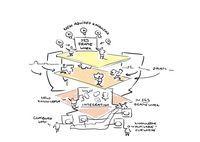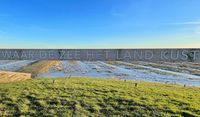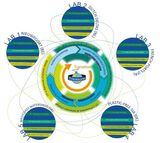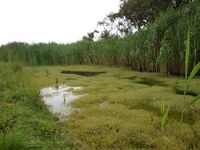Research
Overview of current projects
Further information on the individual projects can be found by clicking on a project name in the index on the left-hand side.
WADcouple
The WADcouple project is the synthesis and transfer project of the current (2024-2028) trilateral Wadden Sea research. The project started in June 2025 and aims to leverage the scientific findings of trilateral Wadden Sea research for policy and enrich them with a socio-ecological perspective.
To this end, the WADcouple project organises a transdisciplinary knowledge integration process on three different layers. On the first layer, the integration and synthesis of the newly acquired knowledge from the five projects of the trilateral Wadden Sea research (ParCA, SALTGARDEN, TRICMA2, Sedway, WADWAD) will be organised. At the second layer, the active integration of societal actors not yet represented in the individual projects will be sought. At the third layer, the integration of knowledge from the five projects will be deepened and utilised for the evaluation of different use scenarios in the Wadden Sea region through the development of a socio-ecological perspective.
iSeal 2
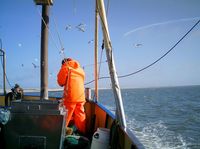
This project uses a holistic transdisciplinary research approach to develop recommendations for action to minimise the impact of multiple stressors on biodiversity, functionality and the food web along the German North Sea coast. Together with key actors from the administration and ecosystem users to be identified during the project, the project is developing various building blocks for the implementation of the ecosystem concept. The aim of the UOL project is to understand the implementation of ecosystem-based management in the Schleswig-Holstein and Lower Saxony Wadden Sea National Parks, to enable a transdisciplinary assessment and to develop a decision-making toolkit to support implementation. To this end, the implementation of the transdisciplinary research agenda developed in iSeal1 will be continued. The inter- and transdisciplinary approach of the research agenda enables an efficient knowledge transfer and an integrative dialogue between the scientific and societal partners of the iSeal2 project.
iSeal 2 is the second phase of the iSeal project, a sub-project of the DAM research mission "Protection and Sustainable Use of Marine Areas", which is investigating the effects of climate change, fisheries and invasive species on the coastal ecosystems of the Wadden Sea National Parks in Germany.
WADWAD
The aim of the WADWAD project is to develop an innovative, climate-resilient and ecosystem-based action plan for the Wadden Sea's land-sea transition zones. This trilateral action plan will be designed on the basis of knowledge from various scientific disciplines, the expertise of decision-makers from politics, administration and management and the opinions of local coastal residents. The focus here is on creating knowledge about the regional effects of the complex interrelationships between sediment dynamics, climate change and ecosystem loss. This will make it possible to develop ecosystem-based adaptation scenarios that offer concrete, local solutions to the challenges of sea level rise and climate change.
TREASURE
In the EU Interreg North Sea-funded project "TREASURE - Targetingthe REductionof plASticoUtflowinto the noRthsEa", 15 partners from Denmark, Germany, the Netherlands, Belgium and France are working to reduce the discharge of plastic waste from rivers and inland waters into the North Sea through an integrated cross-sectoral approach to identification, removal and reduction, thus making an important contribution to solving the plastic problem. At the end of the project, four dimensions ('Governance & Policy', 'Data Collection & Analysis', 'Prevention & Behaviour Change' and 'Removal') will be addressed in five regional real-world laboratories representing different areas typical for the North Sea region until 2026. Each real-world laboratory of the five participating countries aims at a combination of waste management techniques, data collection, prevention measures and policy strategies with the aim of developing robust, practice-orientated solutions for all four dimensions.
Macroplastics
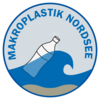
The increasing pollution of the oceans with long-lasting plastic waste is a global problem with far-reaching effects on marine ecosystems. Lower Saxony's coasts and island beaches are particularly affected by these developments. An interdisciplinary consortium at the University of Oldenburg, consisting of physical oceanographers, geoecologists and environmental planners, will comprehensively address this problem with the aim of developing a solid scientific basis for the sources, distribution pathways and accumulation areas.
Further information can be found on the project page and on the info page.
Neophyta
Global trade and travel are making it easier for more and more plant species to find new habitats. Many of these so-called neophytes are harmless, do not cause any damage and fit into the existing environment without any problems. If these species displace native species or change the habitats so that other species are affected, they are labelled invasive.
As highly adapted species of the beach, dune or salt marsh habitats, the plants of the East Frisian Islands may be particularly at risk of such habitat changes or even complete habitat loss. The occurrence of invasive neophytes has been known and documented there since the 2000s. Our research project is dedicated to the question of the extent to which invasive neophytes affect biodiversity and ecosystem stability and attempts to identify new ways of managing invasive species.
Further information can be found on our project page.
Seagrass meadows
In a co-operation project with the Lower Saxony State Agency for Water Management, Coastal Defence and Nature Conservation (NLWKN Oldenburg/Brake branch), work is being carried out on the topic of "Seagrass under stress - site and habitat analysis to determine resilience potential" (SeeUS).
Seagrasses(Zosteranoltei and Zosteramarina) are suitable as a very good assessment parameter in accordance with the EU Water Framework Directive due to their particular importance in the Wadden Sea ecosystem and their sensitivity to environmental pressures. In order to record and assess the occurrence of seagrasses in Lower Saxony, overall mapping is carried out in the Wadden Sea every 6 years. The comparison of 2019 with 2013 showed a decline in the total area of seagrass meadows of approx. 75%; the decline in densely colonised areas even reached approx. 85%. As the influencing factors that led to this sharp decline cannot currently be narrowed down more precisely, scientific studies are urgently needed to better understand the decline and its causes. The project aims to record the site characteristics and environmental pressures at selected seagrass meadow sites on the coast of Lower Saxony and to determine the vitality of the seagrasses in the field and in the laboratory.
Further information will be available soon on our project page.

![[Translate to English:]](/f/5/_processed_/3/2/csm_ICBM-Logo-transparent-_91fe1c6774.png)
